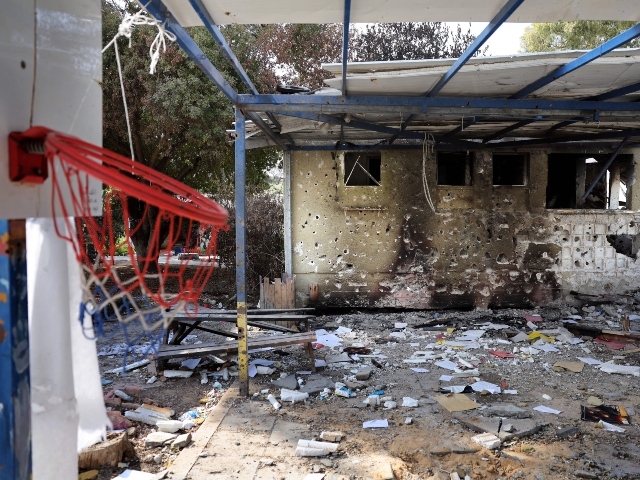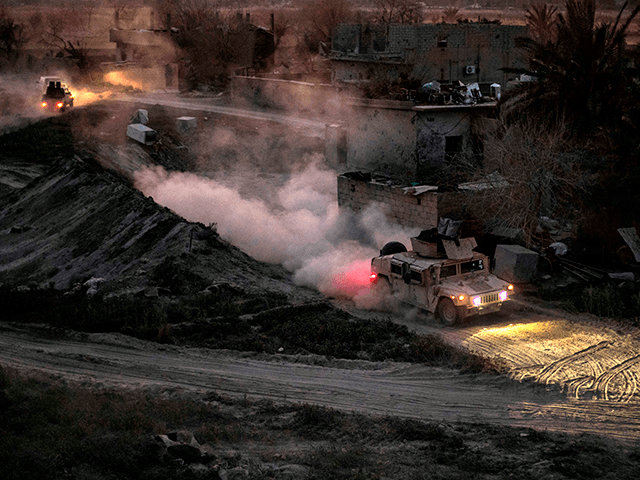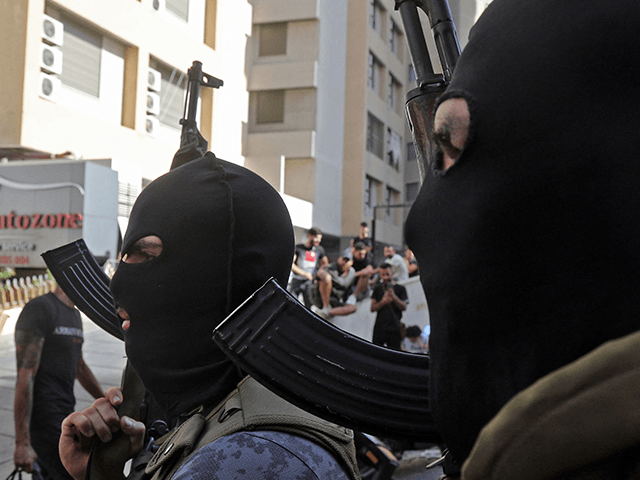Former Lebanese President Michel Aoun slammed the country’s Hezbollah terrorist organization for its persistent attacks on Israel, stating that “one party cannot make decisions about a conflict like this all by itself,” and noting that Lebanon has no obligation to defend the Gaza-based Palestinians as it has “no treaty with Gaza.”
Aoun’s remarks were made in a Monday interview with Lebanon’s OTV television station, as reported by the Middle East Media Research Institute (MEMRI).
According to MEMRI, when asked what Lebanon’s limits are in the conflict with Israel and to what extent the Mediterranean country should enter such a conflict, Aoun highlighted that only a “section of the Lebanese people has made a decision, all by itself, whereas the other Lebanese are not a party to this.”
“The government is silent,” he said. “It does not take a clear stand. This reflects helplessness rather than resolve.”
He also expressed his opposition to “linking” the Lebanese front to that of Gaza’s, noting “We have no treaty with Gaza,” and that Lebanon “is not connected to Gaza by an agreement,” while proposing that “perhaps the Arab League could have done something.”
In response to the suggestion that Hezbollah’s actions are “more of a preemptive move than an act of support for Gaza,” Aoun dismissed it as “just an opinion.”
“There are no indications of this,” he said, adding that “perhaps instead of pushing the danger away from us, getting into this war only aggravates it.”
When asked who ultimately decides on these issues, Aoun declared that currently “the people who are fighting are calling the shots.”
“The man who entered this war is the one who makes the decisions, as long as the Lebanese government does not make a decision, on behalf of the Lebanese people,” he said.
“You can see it,” he added. “They [the mediators] are in touch with Hezbollah.”
Aoun also insisted that everything has to be “on the Lebanese table” in all future discussions.
“One party cannot make decisions about a conflict like this all by itself,” he argued. “We have a government that claims to be the ruler, but in fact, it is not.”
The matter comes as Israel battles to dismantle Hamas after its unprecedented October 7 massacre — the deadliest attack against Jewish people since the Nazi Holocaust.
The multi-pronged October attack saw some 3,000 terrorists burst into Israel by land, sea, and air and gun down hundreds of participants at an outdoor music festival while others went door to door hunting for Jewish men, women, and children in local towns who were then subject to torture, rape, execution, immolation, and kidnapping.

In this picture taken during a media tour organised by the Israeli military on October 22, 2023, paper and debris are strewn outside a burnt house riddled with bullets as it stands empty in the Israeli Kibbutz Beeri along the border with the Gaza Strip, in the aftermath of a Palestinian militant attack on October 7. (Photo by Thomas COEX / AFP) (Photo by THOMAS COEX/AFP via Getty Images)
The massacre, which drew parallels to scenes from the Nazi-era Holocaust, resulted in around 1,200 dead inside the Jewish state, over 5,300 more wounded, and at least 241 hostages of all ages taken — of which nearly 130 remain in Gaza. The vast majority of the victims are civilians and include dozens of American citizens.
The following day, Hezbollah fired guided rockets and artillery shells at Israel in response to the Israel-Hamas war that began a day earlier.
Since then, intensified clashes between Israel and Hezbollah have significantly escalated tensions in the region, with exchanges of fire across the Lebanon-Israel border leading to major displacements.
Hezbollah, a Lebanese Shia Islamist political party and terrorist group, wields significant influence in Lebanon, effectively shaping its political and security landscape, and is often perceived as a state within a state. Its military strength has grown considerably, at times surpassing the capabilities of the Lebanese Army. With support from Iran and political backing from Syria, the group has expanded its activities beyond Lebanon, notably participating in the Syrian Civil War alongside the Assad regime.

A general view shows a vehicle of the Kurdish-led Syrian Democratic Forces (SDF) in the village of Baghouz, near Syria’s border with Iraq, in the eastern Deir Ezzor province on March 11, 2019, as their battle continues against the last pocket of Islamic State group (IS) jihadists. – Baghouz is the latest major battlefront in Syria’s complex civil war, which has killed more than 360,000 people since 2011. Beyond it, the Islamic State group retains a presence in eastern Syria’s vast Badia desert and sleeper cells in the northeast. (Photo by Delil souleiman / AFP) (Photo credit should read DELIL SOULEIMAN/AFP via Getty Images)
Consequently, it poses significant security concerns to Israel and has contentious relations with the United States.
Hezbollah has been designated as a terrorist organization by over a dozen countries and several international entities, including major Western nations, members of the European Union, and most member states of the Arab League,
The United States, along with several other countries and international organizations, designates Hezbollah as a terrorist organization due to its involvement in terrorist activities, including attacks against American, French, Israeli, and other targets.
In 1983, Hezbollah bombed the Beirut Marine barracks in Lebanon, killing 241 American servicemen in what was one of the deadliest pre-9/11 attacks against the U.S.
Speaking at a White House event marking the 35th anniversary of the attack in 2018, then President Donald Trump stated that, “No terrorist group other than al Qaeda has more American blood on its hands.”
Last week, Hassan Nasrallah, the leader of the Lebanese terrorist group, claimed Hezbollah’s attacks had displaced 100,000 Israelis and another two million could lose their homes, the latest in a series of escalating threats against the Jewish state from Beirut since October 7.
Lebanon has been grappling with an economic crisis for four years, marked by shortages of fuel, medicines, and basic goods, with the nation’s financial system coming to a standstill following a staggering 95 percent plunge in the local currency’s value. With 75% of its population living in poverty, the International Monetary Fund (IMF) has cautioned that the country might experience hyperinflation without urgent action.
Additionally, Lebanon has been without a president since Aoun’s term ended in October 2022, as parliament has yet to elect a successor.
In October, Lebanon’s caretaker, Economy Minister Amin Salam, warned that entering into battle against Israel would result in Lebanon plunging into “the Dark Ages,” noting that the “vulnerable” crisis-stricken country “cannot afford a war.”
According to him, even a “small escalation” would result in Lebanon paying a “very heavy price.”
In December, Middle East analyst and commentator Caroline Glick warned that the Biden administration is proposing an “Israeli defeat” in the country’s north and effectively “standing with Hezbollah against Israel,” pointing to a proposed resolution to the Israel-Lebanon conflict that could strengthen Hezbollah and threaten both Israel and the U.S.
Joshua Klein is a reporter for Breitbart News. Email him at jklein@breitbart.com. Follow him on Twitter @JoshuaKlein.

COMMENTS
Please let us know if you're having issues with commenting.